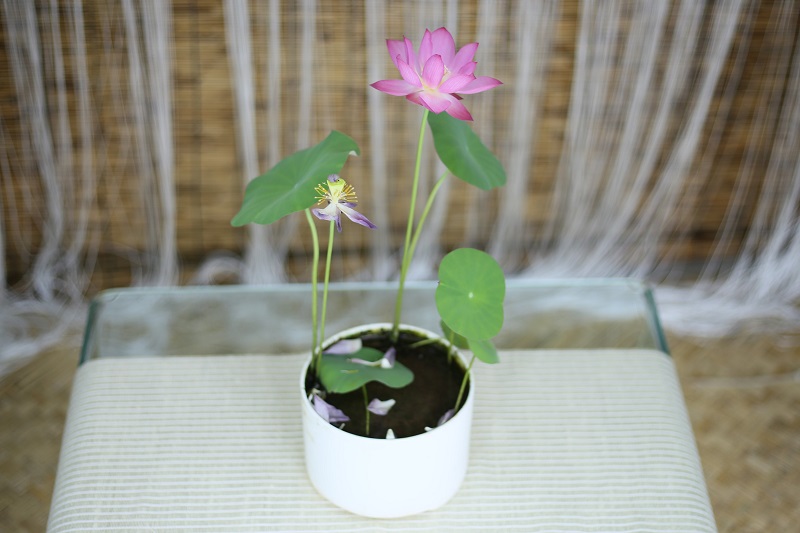The good old Feng Shui is all about the right (read beneficial) placement of objects in your surroundings, be they material things or living ones.
Yet, some elements are more powerful than others of the same kind as they will improve the energy, no matter how you use them. Notably, plants are vital elements in your immediate space that represent pure life essence and renewability, let alone that they purify the air you breathe daily.
Just like there is a myriad of colorful and dappled plants everywhere around us, there is also a myriad of people who are confidently apt at interpreting their meaning in a human life.
How Plants Bring Positive Energy into the Home
Simply put, “plants are living objects, which can revive tired, weak, or lifeless spaces,” explains Carter. “They’re always changing and growing, which can help people take action and get the ball rolling in any area of their life.” Chi echoed this sentiment, adding that “plants bring the wood element into a space, which is one of the five main feng shui elements. This creates and supports the energy of vibrant health, growth, and exploration.”
Additionally, plants’ air-purifying capabilities promote “good oxygenation levels, which is the basis of positive feng shui for health and well-being,” adds Chi. “Greenery also introduces mother nature’s vibrant, life-giving energy into a space, and every person needs that.”
What Is It & How Does It Affect You?
According to Chi, the bagua is an energy map that shows the feng shui anatomy of a home. “It helps one see (and change) certain aspects of their life that are connected to certain areas of their home,” she explains. The bagua has nine sections: wealth and prosperity, fame and reputation, relationships, family and physical health, spiritual health and well-being, children and creativity, knowledge and personal growth, career, and travel and connections.
“Each area of the bagua needs specific feng shui elements in order to thrive,” adds Chi. “For example, the ‘family and physical health’ area, which lies on the east side of your home, loves the wood element (plants), and the water element (a fountain), but cannot tolerate too much fire (a fireplace) or metal (metal shelving).”
As mentioned above, plants are representative of the wood element, which thrives in the east, southeast, and south areas of the home. With that said, each plant brings a different energy to a space.
“While the lush areca palm gives off a flowing, soft, and vibrant energy, the sharp cactus and the pointed snake plant give off a very different energy; they’re best used as a protective feng shui cure and should be placed by a front door or a big window,” explains Chi. It’s also important that the plants you bring into your home are vibrant, lush, and healthy — dead or dying plants are bad for feng shui.
The Best Plants for Feng Shui
1.Pine Tree
The pine tree is another ubiquitous symbol of the Feng Shui gardens. It represents longevity, resilience, integrity, and dignity. It can be placed wherever you need to remember “the great picture.” So, it is always appreciated near the front door where it will remind you of the stellar attributes you can acquire daily.
2. Bamboo
This is one of the first plants that most people think of when setting up a Feng Shui garden. Why is it so? Well, the popularity of this tree is due to its symbolism of wisdom, fidelity, flexibility, and cooperation. It can be used anywhere since these qualities are highly desired, or anywhere where there is a special need of lifting the chi. So, the way the bamboo grows is particularly matching this purpose!
3. Lotus
Only a few flowers are more cherished than the lotus one. Actually, the lotus tree is a mythological plant! Beside its delightful shape and fragrance, it has a spiritual significance as the Buddha followers see it as a symbol of enlightenment, which we all can achieve in our lives through our arduous work and good hearts. It also symbolizes perfection, purity and integrity.
4. Peonies
These are the national flowers of China. They represent kismet, aristocracy, decency, and wealth, so they are particularly favored for wealthy social standing and career pursuits.
5. Plum Trees
These represent brotherhood, charm, friendship, and particularly the return of spring season. These trees signal the end of darkness, and are heralds of brand new beginnings.
6. Pomegranate Trees
Because of their many pinkish seeds, they are representatives of fertility and wellness. One woman who was considered childless attributes her 2 children to the garden layout that included these trees as well!

